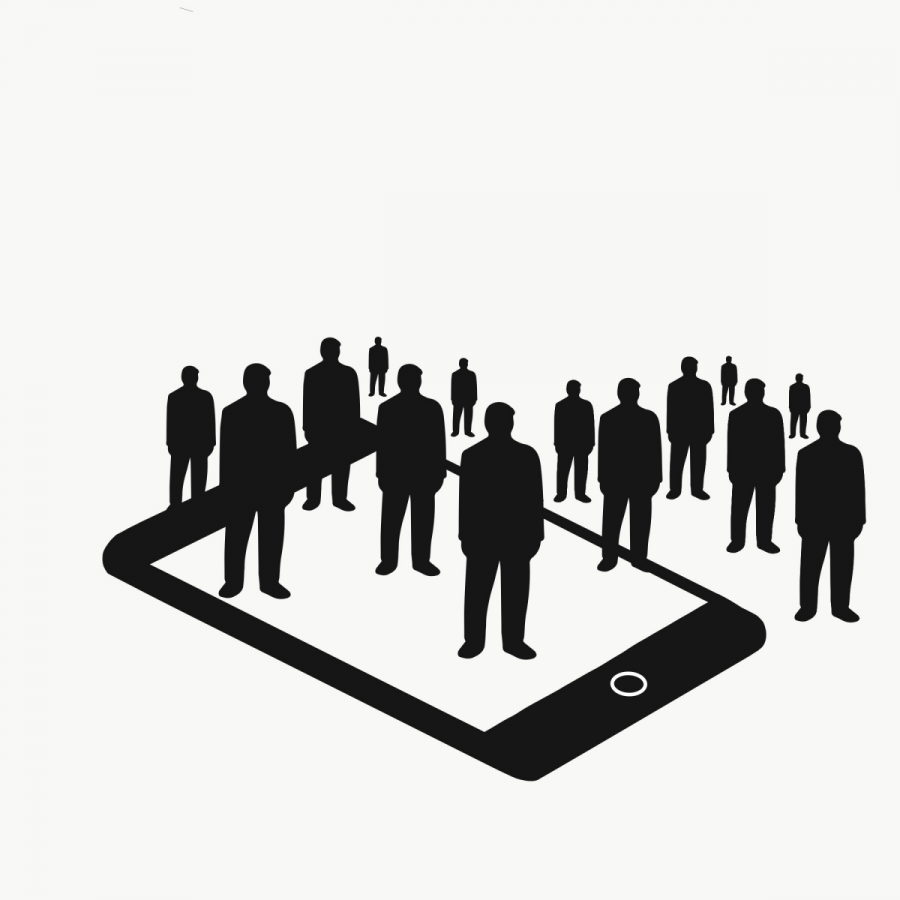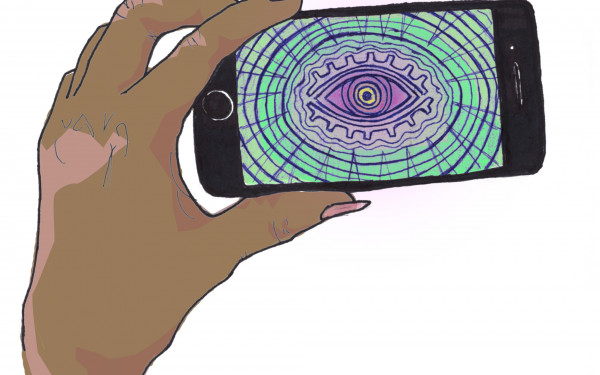Social Media: A New Way to Craft the Popular Mind
What a 19th Century Writer Taught Me About Today’s Social Media
This winter, I went on a road trip to the United States. Along with me, I brought a sociological essay written by Gustave Le Bon: The Crowd: A Study of the Popular Mind.
After going through it over and over again, highlighting pretty much every page and writing in every margin, I found a fascinating book.
Read by many influential figures who shaped the twentieth century—from Lenin to Freud, Jim Morrison to Bernays, Mussolini to Hitler—this book, in a way, changed the course of history. It gave incredible powers to those who understood how to use this mighty tool.
For me, it was one of those books that gave bullseye answers to cryptic questions.
It put words to ideas and concepts I had never quite managed to express.
Le Bon was a 19th century self-taught intellectual. Published in 1895, The Crowd: A Study of the Popular Mind is the first book that theorized about the influence of crowds.
In his essay, the “Father of Crowd Psychology” points out that, before, the power was held by kings and queens.
If they wanted to, they created societal changes. The opinions and actions of the masses were extremely limited.
Subsequently, the Age of Enlightenment brought new ideas to the table and crowds became more conscious of their power.
The French Revolution stems, in part, from this change of mentality. Crowds started dictating how kings should be kings, how rulers should rule, and how governments should govern.
Sharing his point of view, Le Bon is critical of this new phenomenon because he fears that the ever-growing influence of crowds will destroy the foundation of civilization.
Nowadays, social media gives people around the world a platform to unite under a common cause.
Partly conscious of their power, individuals can flock to forums, blogs, comment sections, or websites to share their point of view on all sorts of topics.
Behind a computer screen or a phone, anyone can now start harmful petitions, bully some kids online, promote racism, slut-shame women, bolster hate speech, post revenge porn, encourage a wide variety of eating disorders, and disseminate their opinion based on misinformation—all of which can be done in total anonymity.
Social media is fertile breeding ground for the development of a new crowd psychology. The issue, in my opinion, is that it has never been seen or dealt with before in history.
I don’t want to seem like I’m scared of technology, and I don’t want to alter its relentless progress. What I’m saying is that we simply should be cautious about the growing influence and omnipresence of technology in our lives.
I do admire the constant progression of technology, but I truly believe we don’t fully understand or grasp all of the impacts of its influence on society.
After all, we are one of the first generations growing up with a cellphone in hand. The generation prior to mine couldn’t even do a Google search at the age of 20.
In order to justify my point of view and connect it with Le Bon’s work, we must first understand his definition of a crowd.
First, Le Bon explains that members of psychological crowds—a group of individuals sharing a collective mind—regardless of their level of education, wealth, or privilege, share the same feelings, ideologies, and reasonings.
They share the same “mental unity.” Psychological crowds acquire what Le Bon describes as a “soul” and organize themselves in mysterious and evolving ways.
When isolated from the crowd, individuals would demonstrate that they have their own beliefs, emotions, and values.
When put together, with a common goal, they tend to lose the ability to think rationally and be critical independently; the heterogenous drowns in the homogenous.“Hardly able to reason, crowds are very apt to take action,” Le Bon states. In other words, crowds are actors, not thinkers.
The suggestibility of the masses easily pushes them to action. In crowds, individuals are willing to sacrifice their lives for a given cause.
They surrender to the crowd’s ideals and forgo their own person. Armed with nothing but their convictions, they are eager to go on a blind crusade to defend concepts they may not be able to contextualise or explain.
In order to unite under a common goal, crowds need a spark, a little je-ne-sais-quoi. They need a leader.
These guides are preceded by their prestige— a magnetising aura that strikes inexplicable sentiments of fear, admiration or respect in the masse’s mind. Gandhi, Mandela, Napoleon, Alexander the Great, and Caesar were all names who carried lot of prestige.
These leaders’ purposes is to set an ideal; a reason to fight. They charm crowds with kind words, colourful images, and easy to grasp concepts.
In my opinion, the charismatic leaders in today’s reality would be individuals like prominent influencers or notorious YouTubers.
From their computer or phones, these social media icons can send a Tweet, post a video, or share a picture that will rally their fanbase in an instant. Alone, they can spark feuds between different parties, start a trend, boycott a product or a practice, and lynch-mob someone in cyberspace. In this Digital Age, these web gurus are now the designers of the masses’ opinions.
Now it’s clear that social media polarizes the world. We’ve seen it, for example, with the allegations of Russian interference in the 2016 U.S. election, the Colin Kaepernick saga, and the Gillette advert (We Believe: The Best Man Man We Can Be).
I do believe that social uprisings are necessary to implement progress of societal values (ending Apartheid, the Civil Rights movement, the Quiet Revolution, the French Revolution, etc.), but people shouldn’t blindly follow some random leader’s opinions sprawled out on social media.
Understanding Le Bon’s definition of crowds helps to explain why peaceful aristocrats became executioners and beheaded their monarchs during the French Revolution.
The same thing could be said for the growing practice of doxxing, which has the aim of publishing private information about a targeted person online, often with malicious intent. Growing from subculture websites, like 4Chan, these online practices can have devastating effects on someone’s personal, professional and social life.
In 2017, anonymous civil rights activists took Twitter by storm in an attempt to expose individuals who allegedly took part in white supremacist rallies.
Kyle Quinn, an assistant professor of biomedical engineering at the University of Arkansas, was wrongly accused of participating in a neo-Nazi march. The man and his wife were inundated by calls, emails, and threatening messages. The cyber-lynch mob even went on to Tweet the man’s home address.
Another example is what happens when people turn into into insatiable internet vigilantes. One such example was an online mob wrongfully accusing Sunil Tripathi of having committed the Boston Marathon bombing of 2013 on social media, notably on Reddit.
Also, review bombing is a new cyber phenomenon in which a crowd leaves an intensive amount of negative reviews on various platforms, in an attempt to harmfully impact the sales and popularity of a given product (movies, video games, exhibitions, etc.).
Ghostbusters (2016) and Captain Marvel (2019) both faced massive backlash by seemingly sexist mobs who attacked the fact that these two movies starred women as main characters in existing male dominated movies.
Leslie Jones, one of the lead member of the Ghostbusters reboot, was targeted by poisonous hate mobs who openly bullied the artist, on Twitter, with racist and sexist comments. Hackers even infiltrated the comedian’s personal website with compromising information about Jones. The attacks were so severe that her website had to be taken down for a while.
I don’t believe in these public trials, even more so when they’re taking place behind the anonymity of social media. These blind witch hunts are born out of pure ignorance, misinformation, and fear. The “infection” has spread and sickened the minds of many.
In fact, I deeply despise them. Instead, I believe in a fair trial, brought before the court, away from being spoiled by the mind of an ignorant and illogical crowd.
This is where the danger lies, according to Le Bon. Individuals, when enchanted by the mob psychology, have their impulsivity and emotions become their logic. Their actions become reflexes. This highly volatile, precarious, and ever-changing mind can be devastating.
Le Bon believes that civilizations need fixed rules, laws, and, education systems. Societies need to be built upon rational foundations—not sentimental ones. If crowds, with their weather vane of will and emotions, would overthrow these century-old civilizations, chaos and anarchy might ensue, destroying the cultural pillars of this society.
Sure, Le Bon’s vision can be flawed, rudimentary, or considered old-fashioned. Nevertheless, I strongly believe that his observations were fundamentally true.
If you’re not convinced, just read his book, then go on Twitter, and see it for yourself. Social media exacerbates this crowd mentality and can be a catalyst to the disintegration of democracy if perversely or wrongly used.
We should seek different voices and sources of information when making important decisions. One should not submit to the crowd’s ideal, taking root in logical fallacies and spread by mesmerizing authority figures.
Furthermore, changes shouldn’t occur because of rage, pity, impulsivity, or sadness. Would you make important life decisions based on sudden mood-swings or irrational thoughts? Then, why would you do it for choices that would impact our entire society?
Vomiting someone else’s words and calling them our own isn’t going to cut it. Sure, we can be inspired by someone else’s arguments, visions, and perceptions, but we should only use their voices as a source to build up our own arguments. In other words, build your knowledge, don’t plagiarize.
As individuals, living in a collective society, we need to be critical and develop our own ideas that we will be able to defend and argue if needed. We should join crowds only when we truly understand what we’re fighting for.
Otherwise, we should stay at home—our ignorance would do more harm than good.







